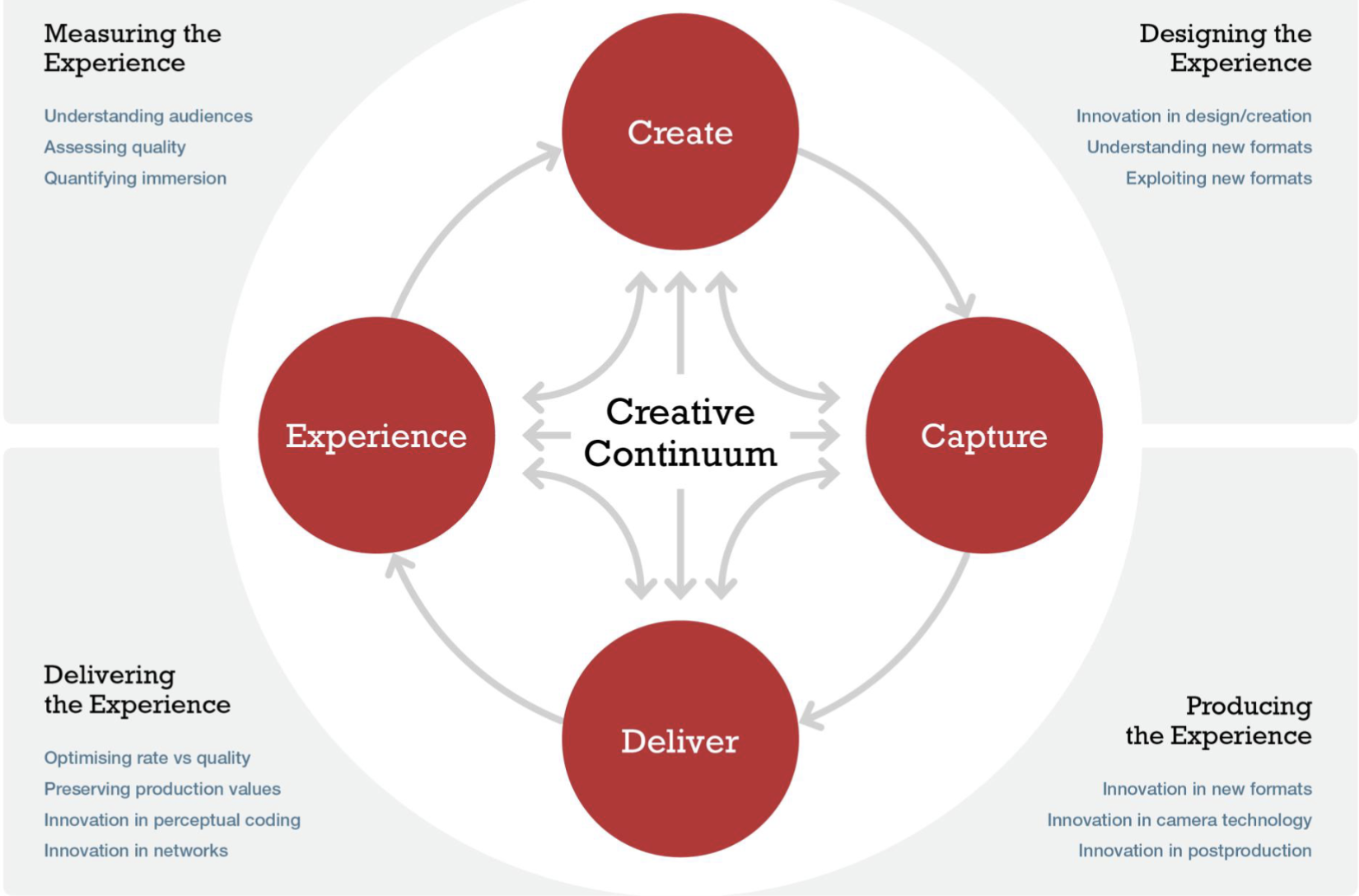The pandemic has catalysed the discussion about how arts and cultural organisations are more than the buildings they inhabit, pushing many organisations, artists, and communities to engage with the digital realm in new and innovative ways, far beyond the already well established live or recorded performance broadcast model. There is potential within the MyWorld research project, funded by UKRI for five years, to move this conversation forward, as we think about using digital to open venues to broader audiences, both locally and internationally, transforming how and where culture is made and experienced, delivering new ways of working, modes of participation, distribution models, and potential revenue streams.
In May 2022, Professor Kate Pullinger led a workshop – funded by the MyWorld work package 1.4: Experimental Productions – in collaboration with Annette Mees, an award-winning immersive theatre director who heads up Audience Labs (recently moved from the Royal Opera House to King’s College London) and Ash Mann, Managing Director of the digital agency Substrakt. Mees and Substrakt are currently scoping Venues of the Future, a collaborative R&D study into hybrid cultural programming, where they are taking a holistic approach, bringing together a multi-disciplinary consortium to explore what a hybrid venue of the future might look like.
For our workshop, we invited a group of fifteen from across the creative industries, including people who run venues, build venues – digital and physical – and make work for audiences, as well as technologists and academics. Despite the fact that this was the first time many of us had attended an in-person workshop in more than two years, the conversation was fluid, lively, generous and, above all, very interesting.
At the start of the workshop, Annette and Ash talked us through the four components they’ve identified for the work cycle for the arts, applicable whether the work is live or pre-recorded or both.
- Development and production (making the work)
- Presentation and distribution (sharing the work)
- Monetisation (paying for the work)
- Audiences (experiencing the work)
Those of us who are involved with MyWorld recognised that these four stages map closely onto the Creative Continuum, the underlying conceptual framework for MyWorld, which foregrounds the inter-relatedness of the different stages of the creative process.
A comparison of the two frameworks brings up one key difference: while the MyWorld Creative Continuum is an academic, engineering-led way of working, what Annette and Ash propose is artist-led, and monetisation, or ‘paying for the work’, which encompasses both revenue generation and subsidy, is of primary importance, a fact that many artists were made painfully aware of during pandemic closures and cancellations.
So, what came out of our session? Along with the pure pleasure of being together and sharing ideas, and the marvellous suggestion that we need a graveyard where we can bury terrible ideas, what follows is a brief and paraphrased selection of some of the questions we began to discuss:
If everyone experiences online differently because of an uneven access to technology, what is a shared experience? What will the behaviour of audiences be like in 10 years? How can we understand human behaviour and deliver work that meets the audience’s social desires? How can venues think more about their identity, instead of relying on geography? As the venue of the future changes, so does the form of what you are creating. How much risk are we willing to take?
And we ended the afternoon by framing potential research questions to explore further:
What is the value of the hybrid venue, what are its affordances, and who is it for?
What is the role of the physical venue if you shift the model away from getting people into the venue, to venue as resource, platform, or service?
If hybrid = accessible, what needs to be done to ensure that access?
Our next steps are to continue to develop the theme of venues of the future and these research questions. We’re applying for a series of grants that will enable us to run experiments that draw together musicians, writers, digital artists, performers and technologists to create truly hybrid, audience-centred work. We’re developing a methodology that will enable us to start small while at the same time, thinking big. We’re excited.
by Professor Kate Pullinger, Bath Spa University
